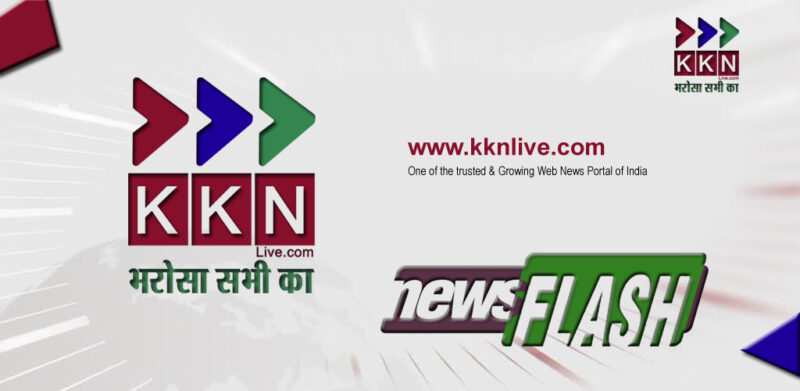

KKN Gurugram Desk | In a powerful diplomatic offensive, AIMIM President and MP Asaduddin Owaisi has accused Pakistan of shielding terrorists even while pretending to comply with international anti-terror measures. Speaking in Algeria as part of a seven-nation Indian delegation aimed at exposing Pakistan’s duplicity post Operation Sindoor, Owaisi cited the example of 26/11 accused Zakiur Rehman Lakhvi, who reportedly fathered a child while officially in prison.
The revelation has reignited global scrutiny over Pakistan’s history of harboring and protecting radical elements, particularly UN-designated terrorists.
In his address to the Indian diaspora in Algeria, Owaisi lambasted Pakistan’s double standards, pointing out the extraordinary privileges enjoyed by terrorists under state custody.
“Zakiur Rehman Lakhvi, a known terrorist, became a father while supposedly imprisoned. In no civilized nation would an accused terrorist enjoy such liberties. This happened in Pakistan, and it reveals everything,” Owaisi stated.
Lakhvi is believed to have been under house arrest or lenient detention, rather than rigorous imprisonment, despite being the alleged mastermind of the 2008 Mumbai attacks, which killed over 170 people.
Owaisi emphasized that Pakistan only acted against Lakhvi and others when it was placed under international financial pressure, particularly via the Financial Action Task Force (FATF) grey list. He asserted that the removal of Pakistan from the grey list in 2022 had emboldened its support for terrorism again.
“Once Pakistan was grey-listed by FATF, only then did legal proceedings against Lakhvi progress. The moment pressure eased, so did their accountability,” he added.
In his remarks, Owaisi expressed hope that the international community would relist Pakistan in the FATF grey list, arguing that it would help curb terror attacks in India and beyond.
“This isn’t just a regional issue anymore. India is the world’s fourth-largest economy. A terror outbreak here won’t be contained—it’ll destabilize South Asia. To ensure global peace, Pakistan must be held accountable,” he stated.
He added that global silence or indifference toward Pakistan’s actions would encourage transnational terrorism, something the world cannot afford.
Owaisi’s comments come in the aftermath of Operation Sindoor, a decisive Indian military campaign launched on May 7, 2025, targeting terror infrastructure in:
Pakistan-occupied Jammu & Kashmir (PoJK)
Pakistani territory hosting anti-India terror camps
Over 100 militants from Jaish-e-Mohammed, Lashkar-e-Taiba, and Hizbul Mujahideen neutralized
Drone and artillery retaliation from Pakistan
Indian counterstrikes damaged 11 Pakistani airbases
A temporary ceasefire agreement reached on May 10, 2025
The military success of the operation emboldened India’s diplomatic outreach to highlight Pakistan’s continued duplicity, and Owaisi’s Algeria visit was part of that broader campaign.
In his speech, Owaisi delved deeper into the fundamentals of terrorism, calling out both ideological radicalization and financial networks as enabling forces.
“Terrorism thrives on two things—ideology and financing. You have seen the dark decade in Algeria. India has faced the same. It is time to break both,” he said.
Drawing a connection between Pakistan and global jihadist organizations, Owaisi pointed out that Pakistan’s ideological foundations mirror those of ISIS and Al-Qaeda.
“Pakistan is a breeding ground for Takfiri ideology. There’s no real difference between their state-sponsored groups and internationally banned outfits like Daesh or Al-Qaeda,” he warned.
Owaisi’s message was clear: the fight against terrorism cannot be selective, and the global community must act decisively. He appealed to Western nations and multilateral organizations to revisit Pakistan’s compliance history with FATF standards.
“We saw progress in 2018 when global pressure worked. Algeria and other nations helped India then. It’s time to stand together again,” he said.
He added that terrorism no longer respects borders and must be treated as a shared international threat.
India has long advocated for stringent action against Pakistan on international platforms, especially FATF, G20, and UN Security Council sessions. The country’s official stand is that Pakistan selectively acts against terror groups—those targeting its own soil—while supporting or ignoring those targeting India, Afghanistan, and Iran.
The Financial Action Task Force grey list includes countries that are under increased monitoring due to deficiencies in preventing:
Terrorist financing
Money laundering
Illegal arms and narcotics trade
Grey listing often leads to:
Sanctions
Trade disruptions
FDI slowdowns
Reputational loss
This is not the first instance where Pakistan has been caught harboring or facilitating terrorists:
Osama Bin Laden was found in Abbottabad in 2011
Masood Azhar remains free despite UN designation
Hafiz Saeed continues to enjoy indirect political influence
The case of Zakiur Rehman Lakhvi further reinforces the pattern of selective detention and public defiance of global norms.
Following Operation Sindoor, India has dispatched seven diplomatic delegations to various countries to:
Highlight Pakistan’s involvement in cross-border terrorism
Garner support for re-listing in FATF grey list
Strengthen bilateral counter-terrorism cooperation
Owaisi’s mission in Algeria is part of this campaign, and similar efforts are underway in:
France
Canada
Egypt
Indonesia
Brazil
South Korea
Interestingly, Owaisi—a prominent opposition leader and critic of BJP foreign policy—aligns with the government’s core position on Pakistan’s role in exporting terrorism. His remarks have been welcomed across political lines, showcasing rare national unity on global security matters.
Asaduddin Owaisi’s speech in Algeria has placed a global spotlight back on Pakistan’s duplicitous behavior—especially its failure to isolate radical elements from governance and law enforcement.
His appeal to re-list Pakistan in FATF’s grey list comes with strong precedent, and if acted upon, could potentially disrupt terror financing networks that affect not just India, but the broader region.
The Indian Space Research Organisation (ISRO) is set to launch the highly anticipated NISAR satellite… Read More
In a dramatic political shift just months ahead of the Bihar Assembly elections, Tej Pratap… Read More
The Union Public Service Commission (UPSC) has officially invited applications for the post of Assistant… Read More
Redmi, known for delivering value-packed smartphones, is all set to launch its much-awaited Redmi Note… Read More
India faces a widespread health issue today—about one in every five Indian women suffers from… Read More
Asia Cup 2025 is set to start on 9 September in UAE with the final… Read More